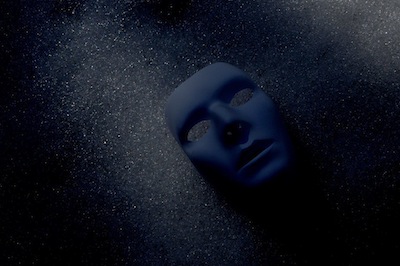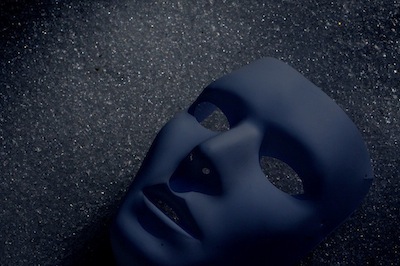Editors' Notes
photo by Katrin Talbot
This issue of Verse Wisconsin includes a number of drama/poetry crossovers by poets, playwrights, performance artists, and hybrids of those categories. Interesting to note is the fact that most of these pieces were labeled by their authors, probably to help their readers/audiences identify what they are. Of the poetic dramas featured in the issue, both in print and online, some are in process; some unpublished and, as yet, unstaged; some have been performed but unprinted; some have had a staged reading, but not a full staging; some were written to be performed as a dramatic reading; others as a full, large-scale production. All, however, were written with the intention of being performed, not only read.
The online issue contains even more of these poetry-dramas, with audio of some of the works in print, plus video of other recent productions and commentary on them: The Latina Monologues, a collaborative effort by Latina poets in Milwaukee and beyond, has gone through several seasons and revisions, and has its roots in poets theater, the choreopoem, and Spoken Word. Angela Trudell Vásquez discusses her involvement in this project online. The Lamentable Tragedie of Scott Walker, a delightfully entertaining, wise, and topical bit of “Fakespeare” was assembled by its author, Doug Reed (with some liberal borrowings from Shakespeare), and rehearsed in a matter of months, then performed to completely sold-out houses in two different Madison venues August-September and November, 2011. Another online example of a poetry drama program comes from the unique UW-Madison's, “First Wave,” which provides scholarships and mentoring to students who work seriously at the craft of Spoken Word and Hip Hop. Finally, two dance poems, collaborations between Milwaukee poet, Susan Firer, and different choreographers raise the question: do words and movement in front of an audience create a poetry drama?
Two prose essays comment (one by Wendy Vardaman and Greer DuBois, the other by Amit Majmudar) further on the idea of verse drama: what it is, why it’s significant, where you find it. We leave you to explore the various ways that the verse dramas in this issue use poetry and what kinds of poetry, mixing them sometimes within a drama to create an effect. And we invite you to add verse drama, however you define it, to the kinds of submissions Verse Wisconsin will now consider on a regular basis.
Here online you will also find our themed section of poems, “Mask and Monlogue." These poems, written in various personae, or incorporating speech (both dialogue and monologue), represent other drama-poetry intersections.
We always select themes which intrigue us personally. In this case, “Mask and Monologue” came into being because we’re both interested in dramatic voice in poetry, in how poets move beyond the Confessional (and confession’s offspring, emo) “I”—and why they make that choice. What does it gain us, to don a mask? We hoped to explore the paradoxical truth that masks can allow us to reveal ourselves. We wanted to see if masks might help us feel greater sympathy for the Other. And we wanted to have some fun playing dress-up.
All of this feels timely, in a moment when the multiplicity of simultaneous truths is ever more evident, when digital images are so easily modified, when email addresses and twitter handles display a fanciful urge, and all manner of online personas are cropping up, all the way to the full-fledged avatars of virtual role-playing games. We are a culture enthralled with masks, anonymity, “reality,” alter egos, and the trick of the thrown voice.
Interestingly, for such a timely subject, more than any theme we’ve run so far, we were surprised at the number of poems submitted which felt naïve, clumsy, as though they were bumping their way through the dark. If poets are truly the antennae of the race, as Ezra Pound believed, then it’s clear that identity is a dicey subject in our culture, at the moment. Some of the work we read (not all!) was clearly unsure of its way. More often than we would have hoped, there was a faint odor of something akin to minstrel humor—not in these cases necessarily racial in nature, but in how the poet appeared to don a mask simply for the sake of a joke or reinforcement of a stale idea. Happily, we had more than enough submissions by poets who have mastered their craft, and many by poets willing to explore new territory and share their experiments.
In this issue, we have made an editorial choice to include a broad variety of approaches and material, to encourage our readers to continue trying on the masks of others, the voices of characters not necessarily their own. Maybe it is not surprising, then, that the usual thematic cohesion is missing, to our ears, from this selection of poems called "Mask & Monologue." Always before we have felt, as we read through submissions and sifted our acceptances, that a gravitational center or centers had formed. Not so this time. In our opinion, the poems here succeed, in their own directions and ambitions. As editors, this feels like our riskiest endeavor to date. We invite you to enter in.
Thanks to proofreaders, Melissa Lindstrum and Greer DuBois, and our artist for this issue, Madison poet Katrin Talbot!



